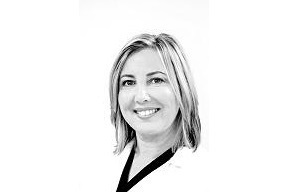What is it Like to Specialize in Dermatology?
 Lori Honeycutt, MD, was first exposed to dermatology practice as a registered nurse at Driscoll Children’s Hospital in Corpus Christi, TX. She was amazed at how so many systemic diseases had skin manifestations and how the diagnostic process took that into account. “I loved medicine in general,” she says “but I was also interested in performing surgeries and cosmetic procedures, so dermatology was a natural progression for me.”
Lori Honeycutt, MD, was first exposed to dermatology practice as a registered nurse at Driscoll Children’s Hospital in Corpus Christi, TX. She was amazed at how so many systemic diseases had skin manifestations and how the diagnostic process took that into account. “I loved medicine in general,” she says “but I was also interested in performing surgeries and cosmetic procedures, so dermatology was a natural progression for me.”
After many years as an established dermatologist, she is even more convinced that dermatology is a good fit. “I am constantly challenged intellectually and I’m able to improve people’s self-esteem and lives through surgery and procedures,” she says. “Of course, the lifestyle is superior to many specialties in that there isn’t any on-call or many emergencies.”
Hands down, what she most enjoys about practicing dermatology “has always been and will always be” the interaction with patients and the satisfaction she gets when they show appreciation for her work. “It may be a small gift they took time to make or simply telling me that I somehow improved their quality of life,” she says.
Dr. Honeycutt believes that the challenges of dermatology practice are the same that bedevil many physicians nowadays – decreasing reimbursements, poor prescription and insurance coverage, and administrative red tape.
When asked about her most memorable experience as a dermatology practitioner, she recounted one case she “will never ever forget … a tragic burn victim, a very famous figure. Of course, privacy issues prevent me from going into detail, but all the aspects of the situation shook me to the core.”
If she could give some advice to a dermatologist in training, she said it would be this: “Never forget, you are treating your mother. And sometimes, mother knows best.”
As a Diplomate of the Board of Certification in Dermatology (BCD), a Member Board of the American Board of Physician Specialties® (ABPS), Dr. Honeycutt says that there are a number of skills every dermatologist in training should have but which they won’t be tested on in the board certification exam. Those skills include empathy, patience, hand-eye coordination, observational and listening skills, and knowledge of accounting, billing, and finance.
If you are a dermatologist inspired by Dr. Honeycutt’s enthusiasm and would like to become certified in your specialty, contact the ABPS. Through the BCD, we offer certification that allows successful candidates to present themselves to the public as qualified medical specialists in dermatology.






